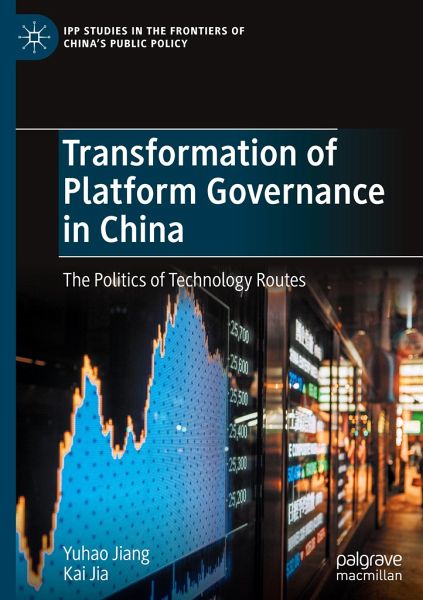
Transformation of Platform Governance in China
The Politics of Technology Routes
Versandkostenfrei!
Versandfertig in 6-10 Tagen
91,99 €
inkl. MwSt.
Weitere Ausgaben:

PAYBACK Punkte
46 °P sammeln!
The admiration of science and technology and the emphasis on political stability are two sides of the same coin in China. Therefore, China is more likely to take aggressive measures to promote or inhibit platform development than the United States and the European Union. But the uncertainty in the decision-making process is worrisome and calls for a broader discussion of the multiple political consequences of technology.














